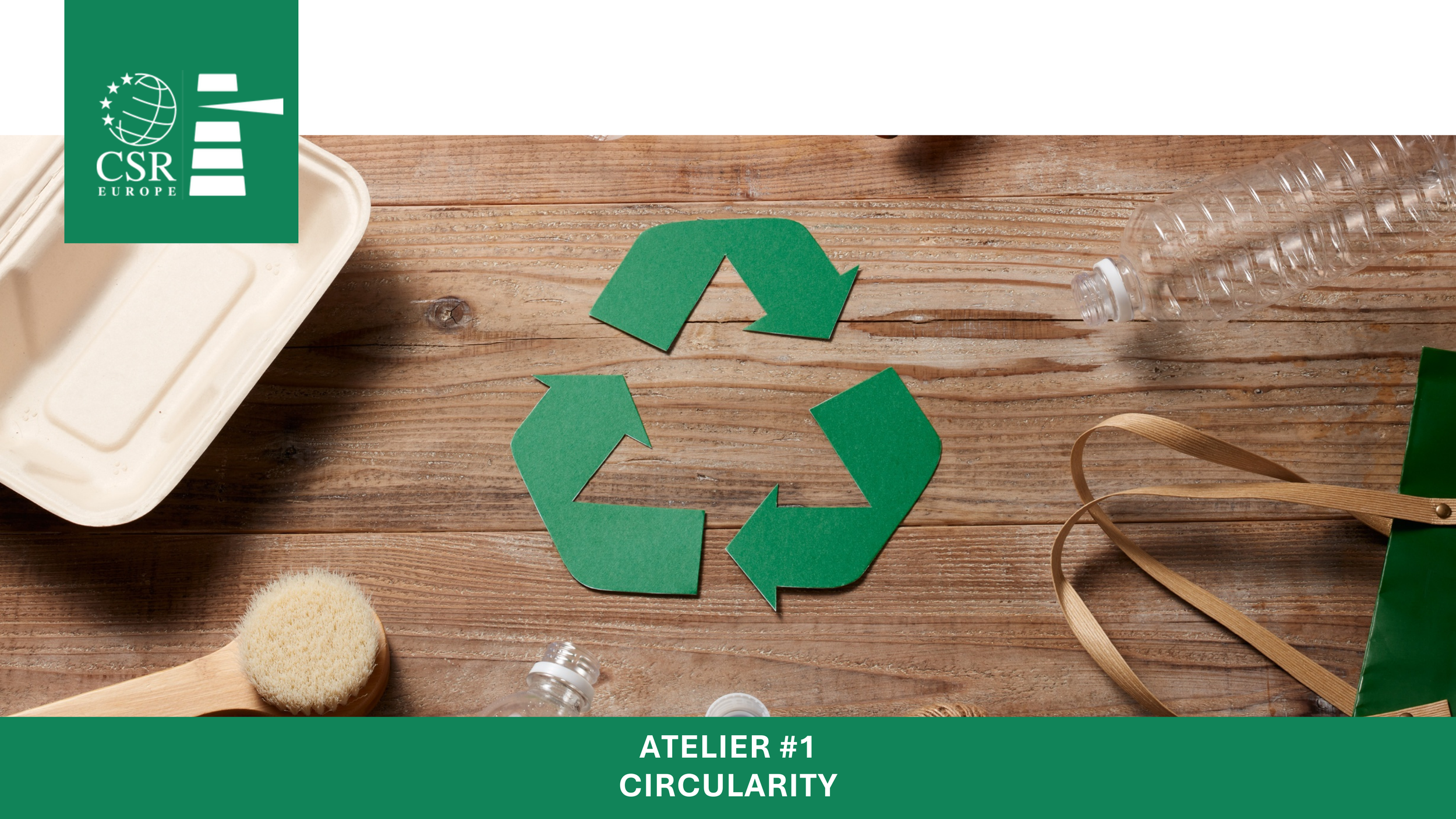Four Things to Keep in Mind When Developing a Circular Business Model
Numerous obstacles could hinder the uptake of circularity in a company’s business model.
With the European Pact for Sustainable Industry and the Community of Practice on Circular Economy CSR Europe fosters the incubation and implementation of circularity.
Circular economy provides businesses with the opportunity to ensure sustained economic development, minimise environmental impact and maximise social welfare. How? By adopting principles of circularity in the design of products and services can ensure their long-lasting durability. For instance, by including repairing and refurbishment options, manufacturers can extend the lifetime of products and avoid planned obsolescence, contributing to more sustainable production and consumption patterns.
However, the transition from a linear to a circular economy implies the development and adoption of new business models. Numerous obstacles, both at company and value chain level, such as current economic model, consumers’ acceptance, policy obstacles could limit the market uptake of circularity.
Based on the discussion with representatives of the European Commission and circular front-runner companies like Orange and Ista, here are the four things to keep in mind when your company is rethinking its business model to incorporate circular economy principles:
Consumers’ acceptance of refurbished products is still low
Consumers in Europe are interested in the environmental impact of products and are asking companies to comply with higher sustainability standards. Although refurbished products are retested, certified, and offer a longer life cycle, they are still perceived by consumers as lower quality commodities.
Circularity starts inside the company
A successful circular economy strategy starts with the involvement and training of the employees. For example, Ista trained its designers and engineers in circular design, to make sure they would develop products that could be easily dismantled and each part efficiently reused or sold.
The EU plans to contrast planned obsolesce with consumers’ rights
Planned obsolesce is still the norm in many sectors. Products are designed to last a fix period of time to encourage costumers to buy a replacement. To address this issue, the European Commission’s New Circular Economy Action Plan aims at empowering consumers. On one hand, in the revision of the Consumer Law, the Commission will ensure consumers are able to receive trustworthy and relevant information on products at the point of sale. On the other hand, the Commission is also working on a proposal on the “Right to Repair” to inform consumers on the repairability of goods and ensure the access to spare parts.
Circular Economy requires collaboration and dialogue between suppliers
Companies cannot succeed with their circular strategy without a continuous dialogue and a close collaboration with their value-chain peers. For instance, a company might not be able to refurbish its products, so they need to build new partnerships with suppliers based on the new circular business model. This was the case of Orange, who partnered up with equipment makers to refurbish and certify old mobile phones.
CSR Europe offers two platforms where companies, industry federations and eu policymakers can tackle The challenges and unlock the opportunities posed by circularity.
Under the umbrella of the Pact, your company and its industry federations can incubate sector and cross-sector collaborative platforms with their value-chain peers, competitors, customers, and experienced stakeholders, to accelerate the adoption of circularity in your industry.
At the same time, you will have the opportunity to engage in a systematic dialogue with EU policymakers on forthcoming policy initiatives linked to the EU Green Deal and Industrial Strategy.
2. Community of Practice on Circular Economy
CSR Europe members can access entry-level and advanced best practice sharing and capacity building on circular economy. Registrations for the next workshop “Circular Business Model”, on October 15, are already open. The event is organised in the framework of the Circular Economy week.
For more information:
Senior Project Manager, Circular Economy


